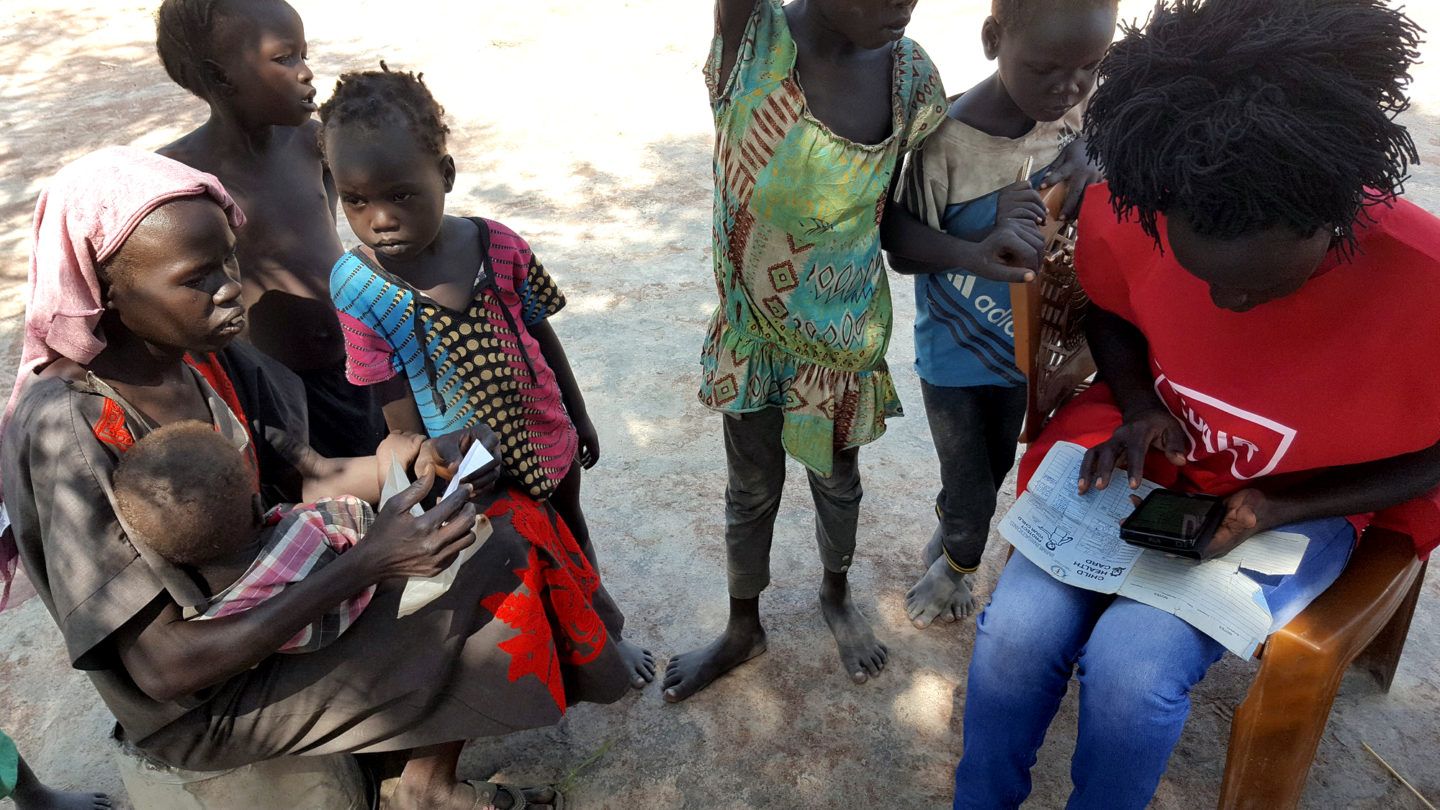Stories from South Sudan
When innovation meets tradition
Technological advancements have made a positive impact on the ways Medair and other aid organisations provide assistance to people in need, but in some places technology must still accommodate traditional methods of communication. Drone technology, big data analytics, and technology like mobile money transfers for cash assistance have improved how aid agencies communicate, assess needs and collect data—particularly in hard-to-reach places and insecure locations.
As technology takes its place throughout the world of humanitarian aid, Medair’s South Sudan team decided it was time to implement electronic data collection using smart phones, replacing paper-and-pencil methods.
“The biggest challenge was in emergency situations where we are meeting a community for the first time, sometimes in areas with no access to electricity or the internet,” said Edwin Ogendi, Monitoring, Evaluation, and Learning (ME&L) Manager.
Medair recruited local staff to work as interviewers; many of whom first needed to learn to use smart phones. “I had some doubts about how the technology would be accepted,” said Edwin, “but the interviewers were excited to learn. They saw the possibilities right away.”
Putting technology to good use still relies on the quality of one-on-one communication. To describe the timing of significant events in South Sudan, for example, the ME&L team relies on traditional story-telling. Determining the age of a child is done by noting the passage of seasons or important events. Making a map of recent history involves the entire community. “Since the majority of the caregivers do not have birth records, we create a timeline of things that happened over the past 59 months,” said Edwin. “Harvesting groundnuts, the death of a leader, a significant cattle raid; all of these things go on the timeline. We have fun working with the interviewers to get consensus on when these things happened, and then during the survey we ask mothers about the birth of their children in relation to these events.”
 An interviewer uses Open Data Kit to conduct surveys in Aweil, South Sudan
An interviewer uses Open Data Kit to conduct surveys in Aweil, South Sudan
As soon as the first survey was completed, the benefits were clear. Using smartphones saved an average of 15 minutes per household for data collection, and we could see the collective results in minutes compared to weeks with manual data input. Cost savings were significant as well – no printing, storage, or transportation of records required.
“Improving how we collect feedback is essential to putting people at the centre of what we do,” said Edwin. “Good-quality data must drive our decisions about the types of projects we run and the assistance we provide.”
Medair services in South Sudan are funded by UK aid from the UK government, the United States Agency for International Development (USAID), EU Civil Protection and Humanitarian Aid, and private donors.
